A smart home uses connected devices like plugs, lights, thermostats and appliances to help you manage how your home works. These devices connect to the internet and can be controlled remotely from either your phone, a tablet, or by using voice assistants like Alexa or Siri.
By giving you greater control over electricity usage, smart home technology makes it easier to save energy and cut down on electricity bills, with some devices even improving your home’s safety.
Key characteristics of a smart home
Smart homes rely on a few key features that let your devices work together, adapt to your routine, and give you more control over how your home runs
Interconnected Devices
Smart devices (like plugs, thermostats, and lights) connect to your Wi-Fi or a smart hub. Most come with apps or work with voice assistants like Alexa, Siri or Google Assistant.
Once connected, you can control these devices from your phone or with your voice, whether you're at home or away. They can also share information with each other.
Automation
Automation lets smart devices follow a timer or respond to inputs like movement, temperature, or time of day. You can also group actions together into routines.
Devices respond automatically to the rules you set. For example, lights can turn off when no one’s in the room, or your heating can start before you wake up.
Central Management
Smart homes usually rely on a single system or app to manage devices. This can be a mobile app, a smart speaker, or even a wall-mounted hub.
From your control centre, you can see all connected devices, check their status, and make changes. It acts as the brain of your smart home setup.
Smart home benefits
Smart technology isn’t just about gadgets - it’s about making everyday life simpler and more efficient. By using connected devices, you can take control of how your home uses electricity and enjoy a range of practical benefit.
Convenience
A smart home gives you one place to manage appliances and devices. Many devices also provide insights into how they’re working, helping you track performance and make smarter choices.
Cost Savings
By controlling when and how your home appliances run, you can avoid unnecessary energy use. Smart features like scheduling, off-peak charging and automatic shut-off all help bring bills down.
Energy Efficiency
Smart devices make it easier to reduce wasted electricity. From lighting that switches itself off to thermostats that keep rooms at the right temperature, smart homes are more energy-efficient.
Security
Smart doorbells, cameras and alarms give you more control over home security. Real-time monitoring and alerts help keep your property safer, while also offering peace of mind when you’re away.
Smart devices for an energy efficient home
A smart home device — also known as a smart device — is any appliance that can connect to the internet so that you can control it remotely. They’re typically connected to a WiFi network or are hardwired into the property’s broadband connection to give you remote control over the device.
There are many types of smart devices available, here are some of the most popular options for households in Northern Ireland.
Smart Thermostats
Smart thermostats let you adjust heating from your phone or tablet, wherever you are. Some models learn your daily routine and make automatic changes. This helps you avoid heating empty rooms and makes it easier to manage energy use.
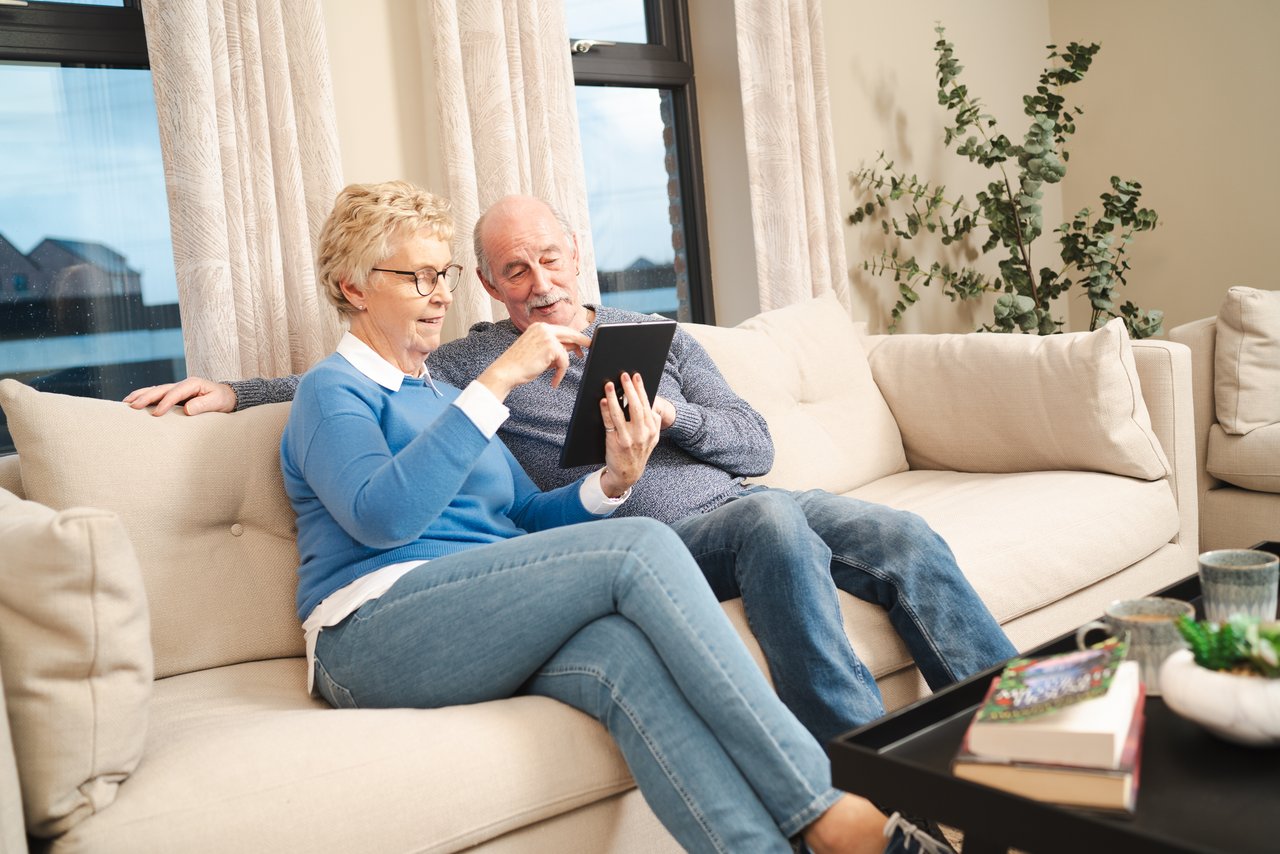
Smart Kitchen Appliances
Smart ovens, fridges and hobs can connect to apps or work together. For example, an oven may switch off when food is ready, or a fridge can send alerts if the door is left open. These features cut wasted energy and add everyday convenience.
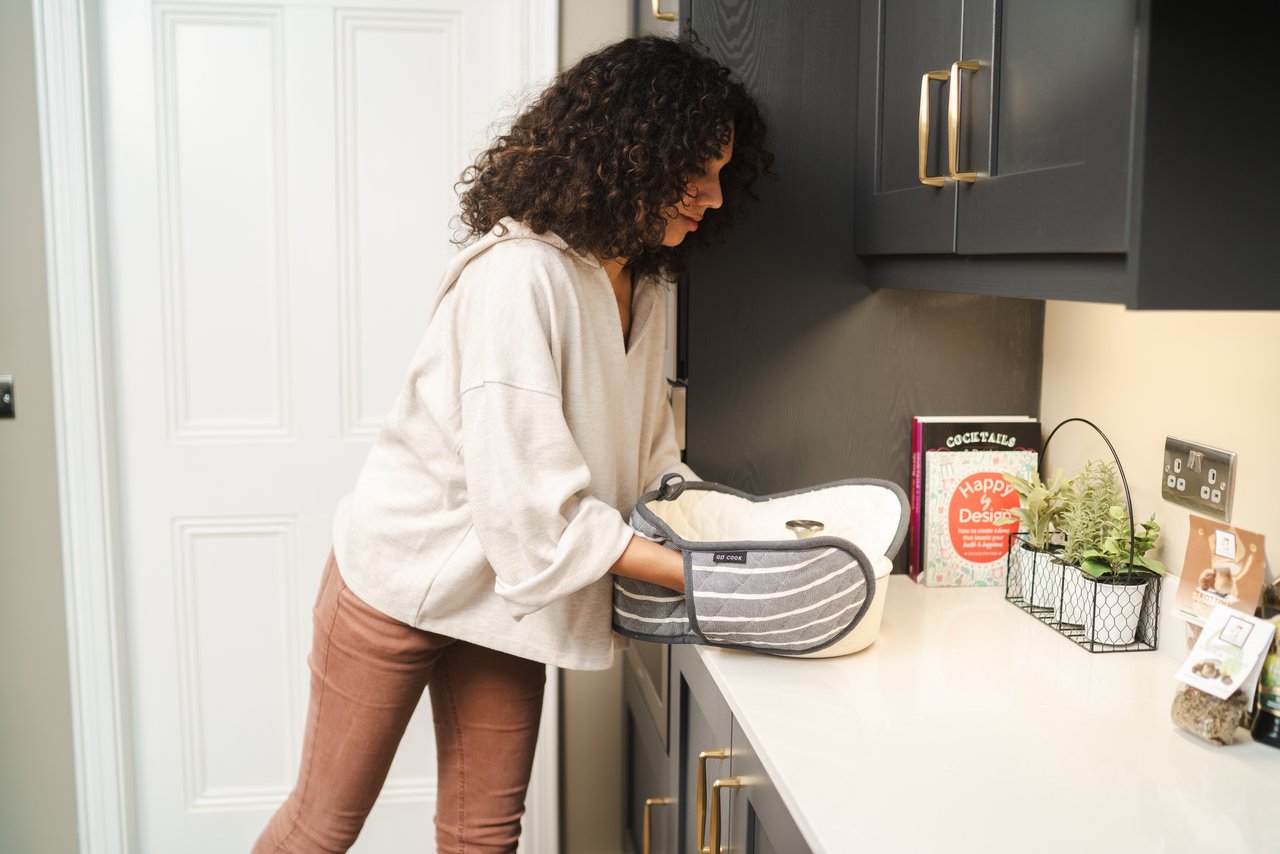
Smart Lighting
Smart bulbs and switches can be controlled with your phone or voice, which takes energy efficient lighting to an entirely new level! You can set timers, dim brightness or switch lights off remotely if you forget. They also double up as a security feature when you’re away.

Smart Entertainment
Smart TVs, speakers and other entertainment devices can be grouped in one system. They can be switched off together to avoid standby power drain, and controlled with a single app or voice command.
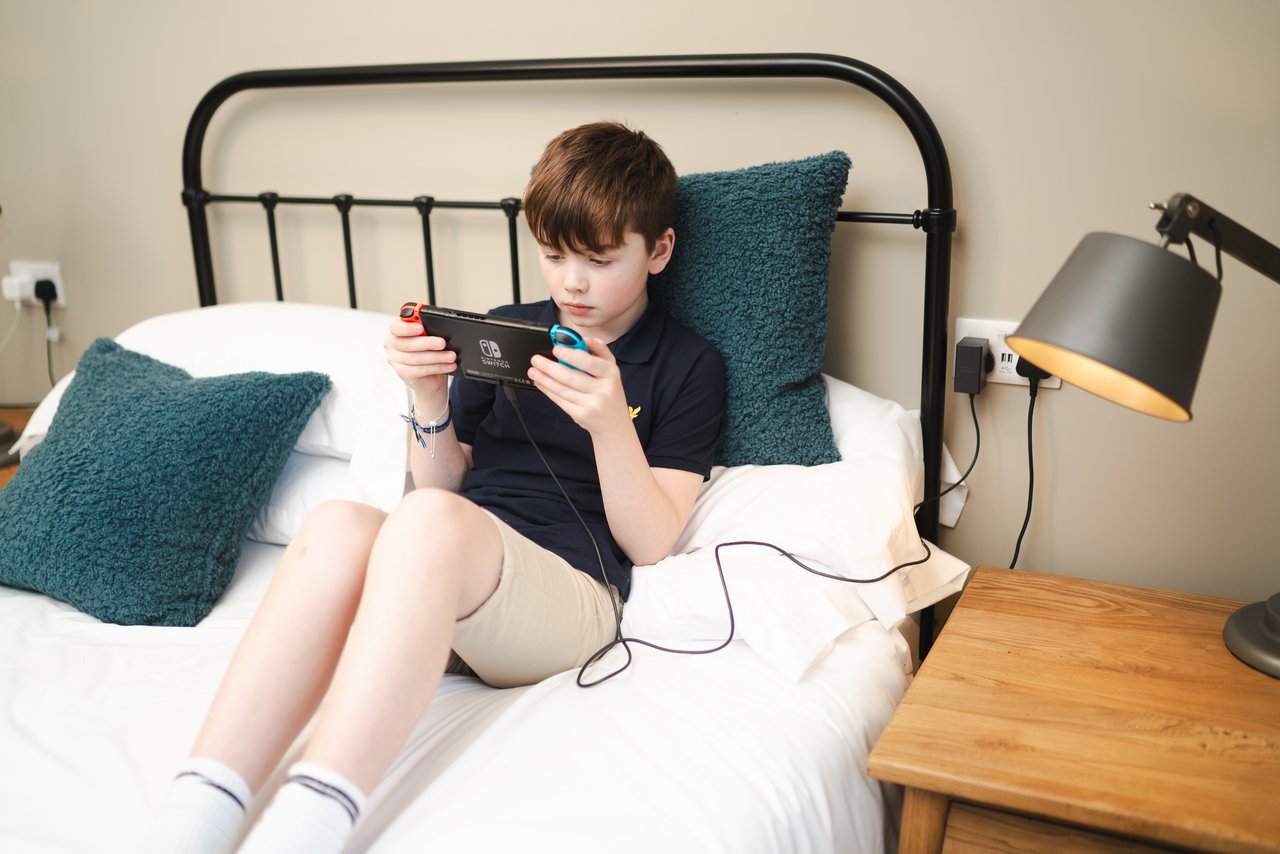
Smart Plugs
Smart plugs connect to your Wi-Fi and give you app control of whatever’s plugged into them. They’re ideal for lamps, chargers and small appliances, and you can schedule when they switch on or off.

Smart Security Systems
Smart doorbells, cameras and alarms let you check in on your home from anywhere. Instant alerts and live video add peace of mind when you’re out. Some insurers even offer home insurance discounts when you install smart security features.
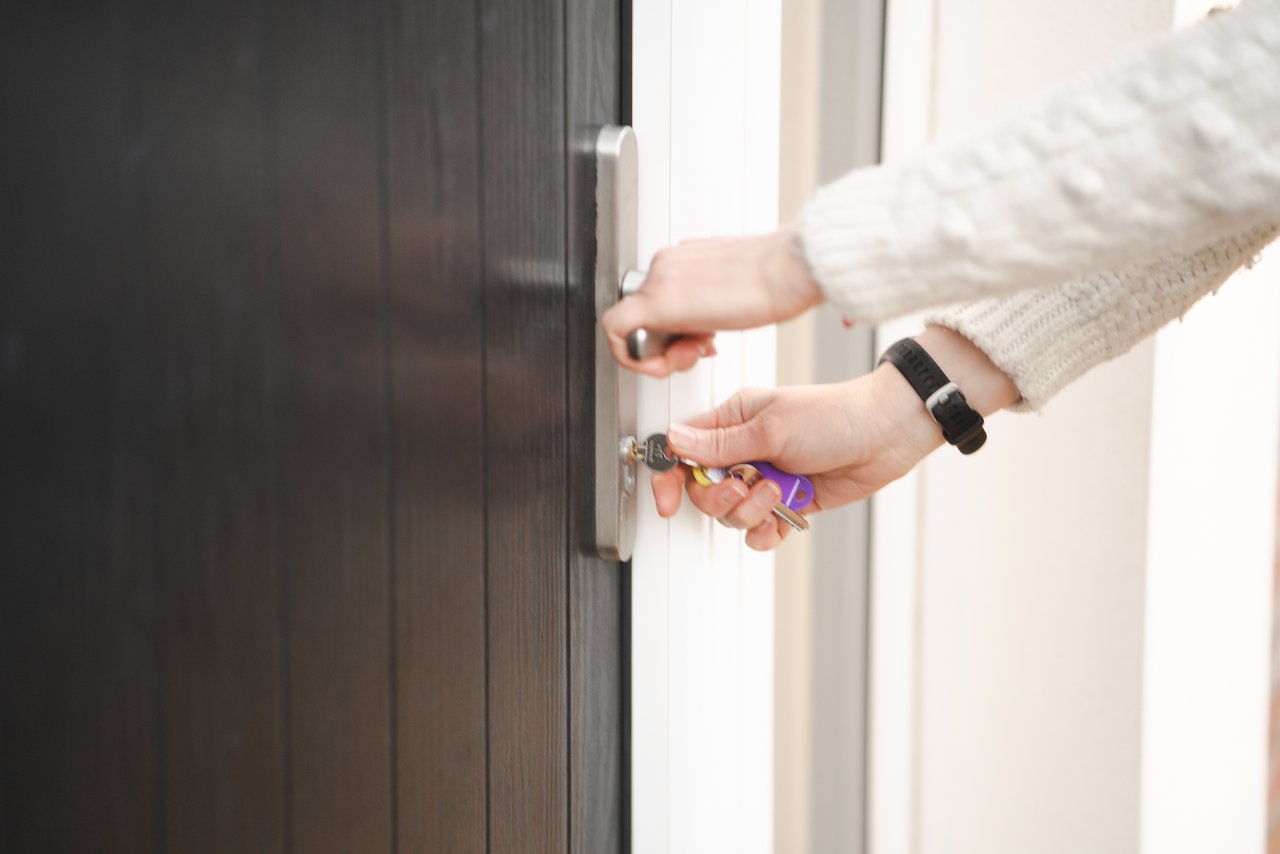
Smart EV Charging
With smart EV chargers you can start, stop and schedule charges from your phone. This means you can charge your EV when your electricity is cheapest. Combining smart charging with the reduced overnight rates of our EV Nightshift tariff can save up to £330 a year.
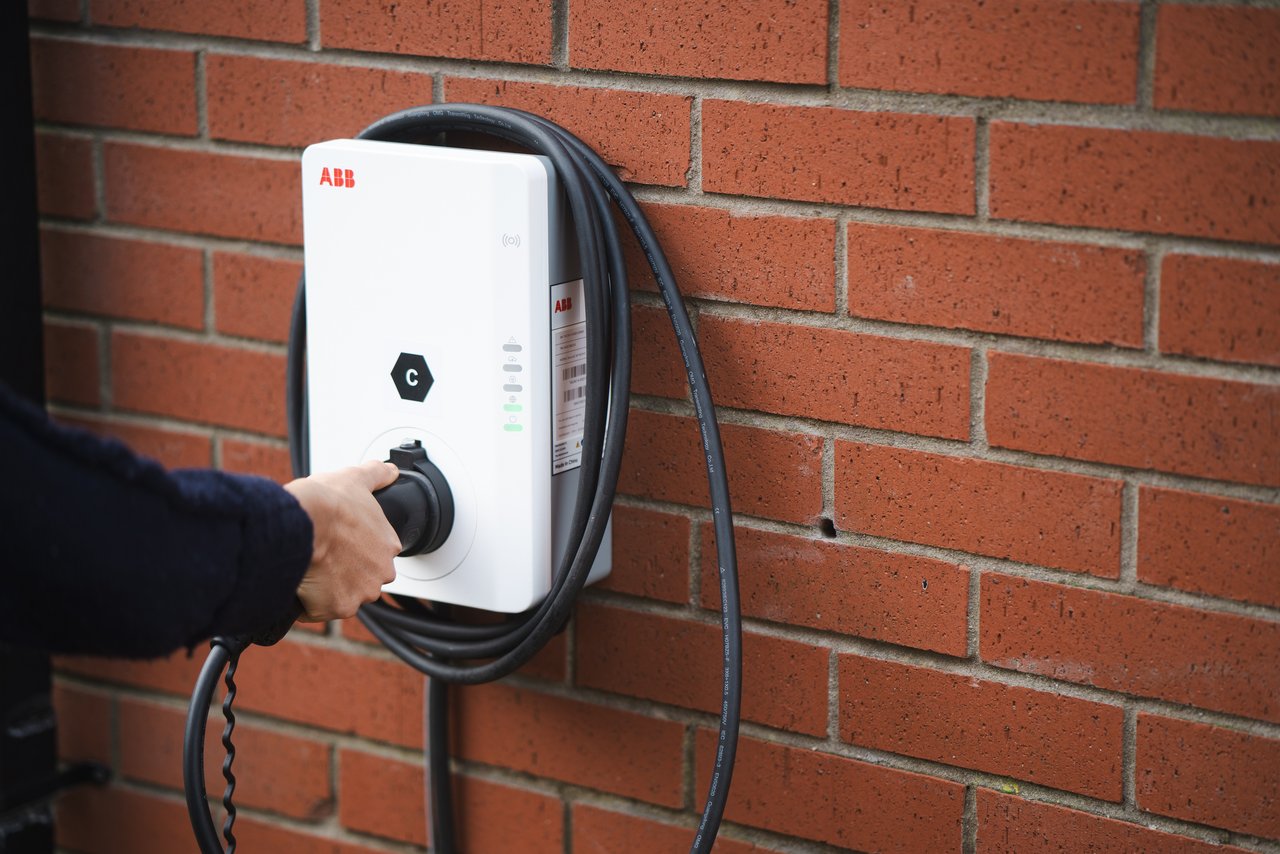.jpg)
Charge Smarter with Power NI
Our home EV chargers and EV Nightshift tariff work together to give you more control over car charging. Schedule charging when electricity is cheapest and save money every year.
Explore EV Charging
How to create a smart home
Building a smart home doesn’t need to happen overnight. The key is to start with the devices that will make the biggest impact and then expand at your own pace. Here are a few practical steps to help create a smart home for yourself:
- Start with devices you’ll use every day
A smart thermostat, plug or lighting system is often the easiest first step. These devices show clear savings and let you get used to controlling your home from your phone. - Check your Wi-Fi coverage
Smart devices depend on a strong signal. If your home has weak spots, consider a Wi-Fi booster or mesh system to keep everything connected smoothly. - Choose a central way to manage devices
Most households use a single app or a smart speaker like Alexa or Google Home. This avoids juggling multiple apps and makes it easier to expand later. - Add devices gradually
Think about what would benefit you most next - like smart plugs for convenience, or security cameras for peace of mind. Adding in stages spreads out the cost and avoids overwhelm. - Look for compatibility
Not all devices work with all systems. Check if a new device connects with your existing app, hub or voice assistant before buying.
Save on Smart Devices with Power NI Perks
Power NI customers can get discounts on popular brands and retailers with our Perks scheme. This makes it easier to invest in smart home technology, without overspending.
Discover Perks
Smart home FAQs
By now, you’ll know that creating a smart home can be simple, affordable and done step by step. If you’d like a bit more clarity, we’ve answered some of the most common questions people have about smart technology.
-
How energy efficient are smart homes?
Smart homes are up to 26% more efficient than homes that don’t use smart technology, depending on which devices are installed. Smart thermostats that monitor and control temperatures around your home, smart lighting controlled by your phone and smart EV chargers that schedule off-peak charging are a few of the ways that smart homes can increase energy efficiency. -
Do I need to replace all my appliances to have a smart home?
No, you do not need to replace all your appliances to have a smart home. Many existing appliances can be made “smart” by using smart plugs or add-on devices. This allows you to control things like lamps, kettles and chargers from your phone, while adding new smart appliances gradually over time. -
What WiFi bandwidth do smart homes need?
A minimum download speed of 25 Mbps is recommended for basic smart home activities. For multiple devices or intensive use, aim for download speeds of 100 Mbps or higher. If you're using a smart doorbell or security camera, you will need upload speeds of at least 10 Mbps. The faster your internet connection is, the more responsive and reliable your smart home will be.
Another consideration in ensuring the reliability of smart home technology is WiFi coverage. You might need to get range extenders or WiFi signal boosters to control smart devices in parts of your home that don’t have reliable WiFi coverage. -
Can I control smart devices from more than one phone or tablet?
Yes, you can control smart devices from more than one phone or tablet. Most devices allow multiple users to connect to the same account, so everyone in your household can have access. This means family members can adjust heating, lights or appliances from their own devices without needing to share a single login.


